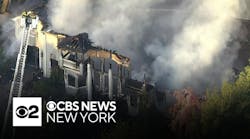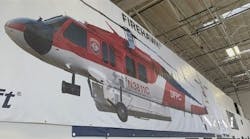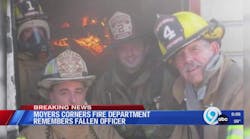The blaze was out before fire engines ground to a halt outside. Damage to the house, built by a local Habitat for Humanity chapter in a north Wilmington neighborhood, was confined to one bedroom. Although they were inside when the fire began, the residents were unharmed.
For firefighters, the limited toll inflicted by the fire that broke out last month on Price's Lane brought into sharp relief the benefits afforded by indoor sprinkler systems. A sprinkler head hanging from the ceiling doused the fire before it spread.
"Had we not had a sprinkler in it, we'd be looking at an empty shell of a house," said Esmond Anderson, Cape Fear Habitat for Humanity's construction manager.
Though sprinklers are now a requirement in certain commercial buildings, such as hotels and apartments, firefighters for years have pushed unsuccessfully for North Carolina to make them mandatory in all new construction, including private houses. Many officials say despite the state's unwillingness to intervene, homeowners and builders are voluntarily incorporating the devices into their building plans, though the practice is not ubiquitous, as advocates prefer.
In that light, volunteers in a group run by a Wilmington Fire Department captain named Kenneth Bogan made it their mission to equip houses built by Habitat with sprinkler systems. To date, volunteers mounted sprinklers in 32 houses around the city constructed by the nonprofit organization.
Bogan said the goal is to prove sprinklers are easily installed, cost little for upkeep and are effective at saving lives.
"It was an opportunity to put our money where our mouth is," he said. "It was an opportunity to put into action what we'd been asking for."
What firefighters want is the N.C. Building Code Council, a 17-member body appointed by the governor to set building standards, to require sprinkler systems in all residential structures. The proposal, which failed by a single vote the last time it came before the council, faces criticism from recession-weary builders concerned about costs, liability and maintenance, among other perceived issues.
"It ups the risks of selling a home; and in these times, boy, that's a tough one," said David Smith, a Wilmington-based builder and council member who voted against the proposed sprinkler provision.
"There's a lot of things we try to do as the building code council," he added. "But we have to be careful and consider costs as well as the unintended consequences that may arise out of it."
The price of sprinklers seems to vary.
Mark Brown, president of the N.C. Fire Marshal's Association, said the systems typically run between $1 and $1.50 per square foot, or about $3,000 for a 3,000-square-foot home.
Smith, however, said the price depends more on the complexity of the house than the square footage, and may cost between $2,500 and $16,000.
The Wilmington Fire Department's partnership with Habitat for Humanity dates back to 2008, when the department approached the nonprofit with the idea to emulate a program begun in Pinehurst in 1996. There, firefighters have worked alongside the local Habitat chapter for the past 16 years, and in 2003 received a federal grant to expand the program, Floyd Fritz, deputy chief with the Pinehurst Fire Department, said in a telephone interview. Since receiving the federal funding, the program has incorporated 33 affiliates, mostly in North Carolina, but also in Virginia and Texas.
In Wilmington, volunteers drawn mostly from the fire department but also including their family members and people from the general community have largely followed through on their pledge. Except for a brief stint where a meter issue resulted in a brief suspension of the program, they hooked up sprinklers in every Habitat house built in the past four years. Firefighters work on their days off, so it costs the city nothing, Bogan said.
While firefighters pursue sprinklers in all new construction, state officials said it remains unclear when the issue might come before the building council again.
Brown, the state fire marshal's association president, said his group suspended its push for the sprinkler provision because the recession weakened the political will. But once the economic picture turns brighter, it plans on re-examining the issue. "People will put in granite countertops and all types of high-ticket items that make things more aesthetically pleasing," he said. "We say skip the granite, choose something cheaper, and put the sprinklers in."
Copyright 2012 - Star-News, Wilmington, N.C.
McClatchy-Tribune News Service





